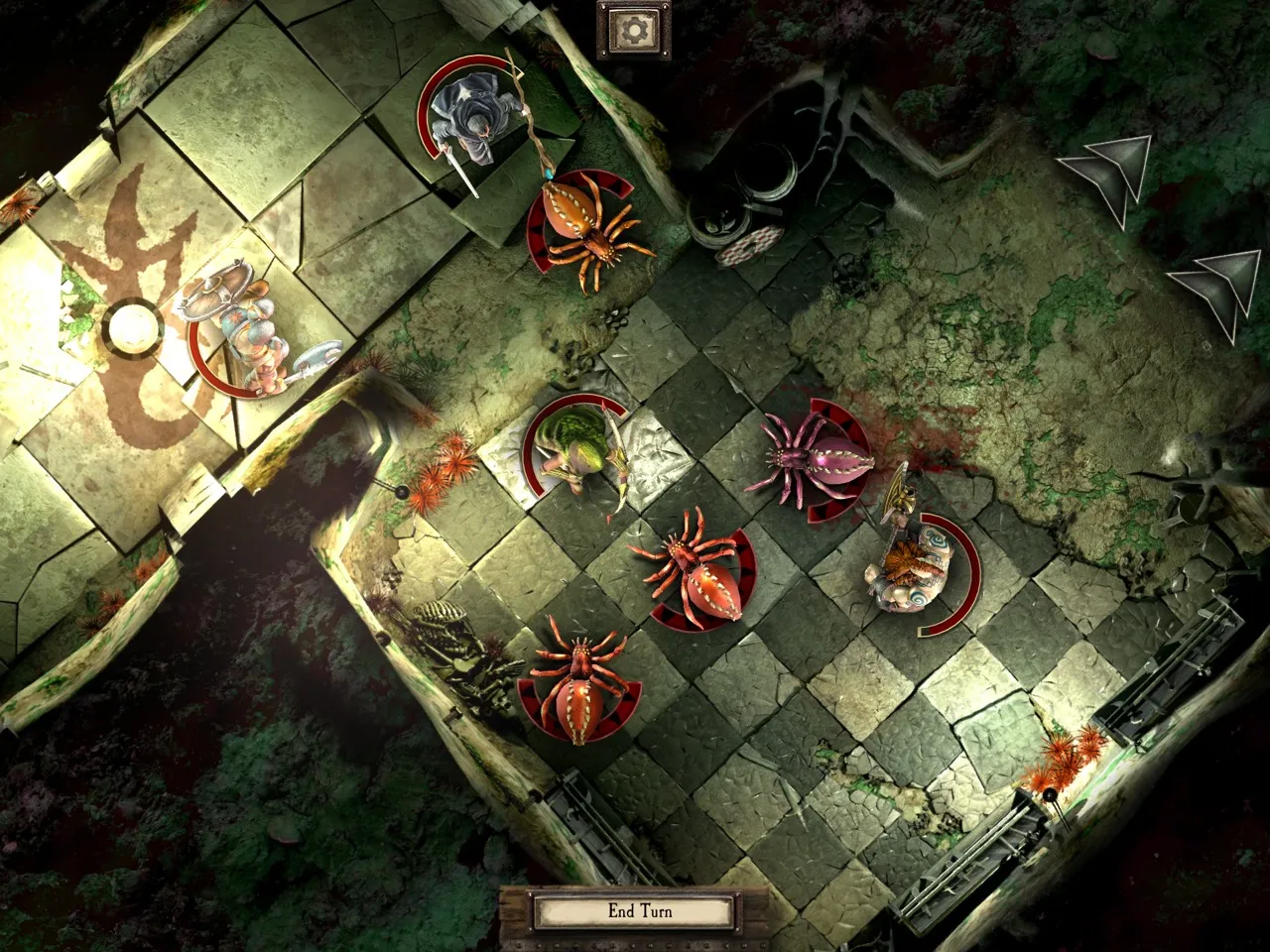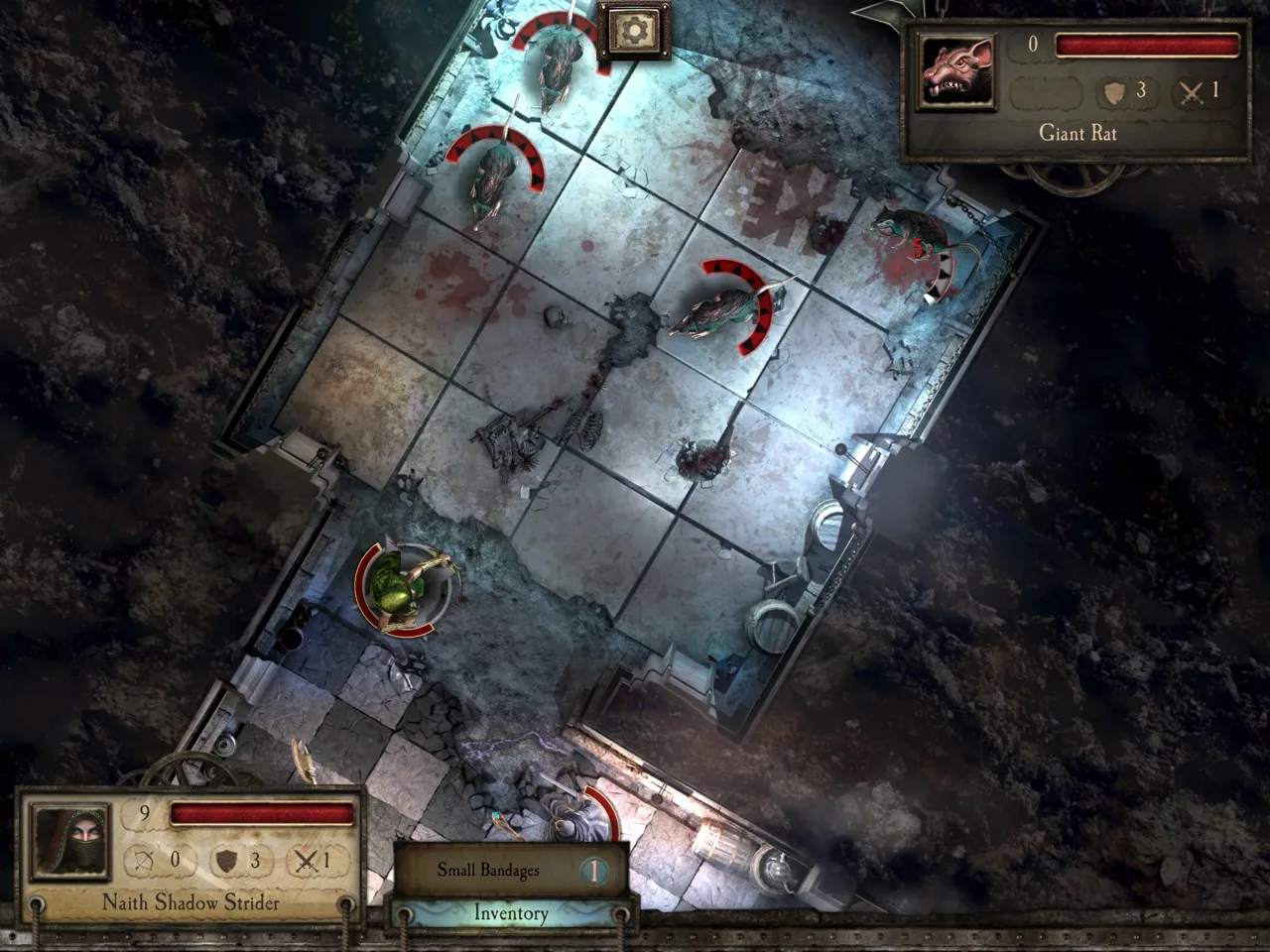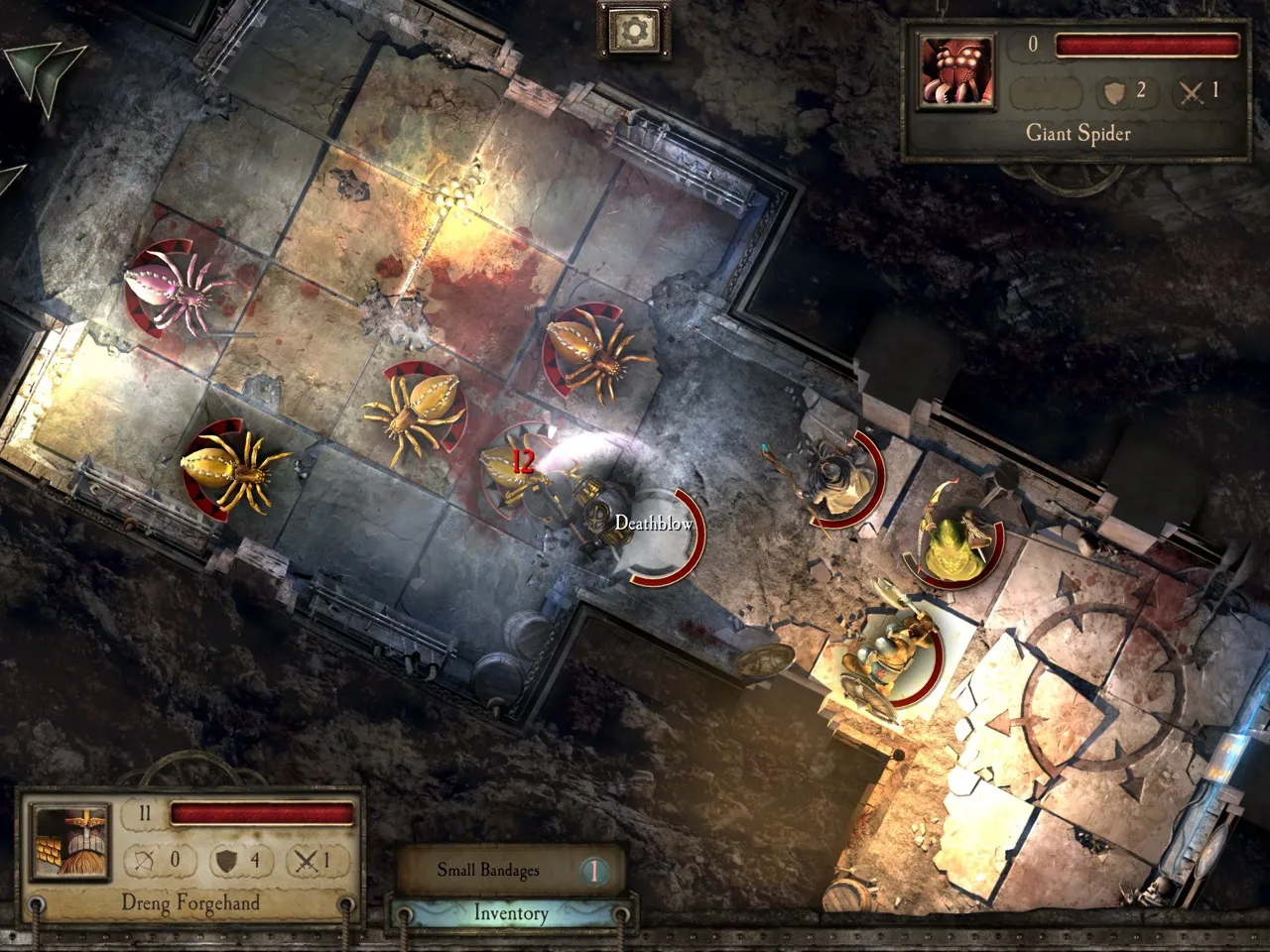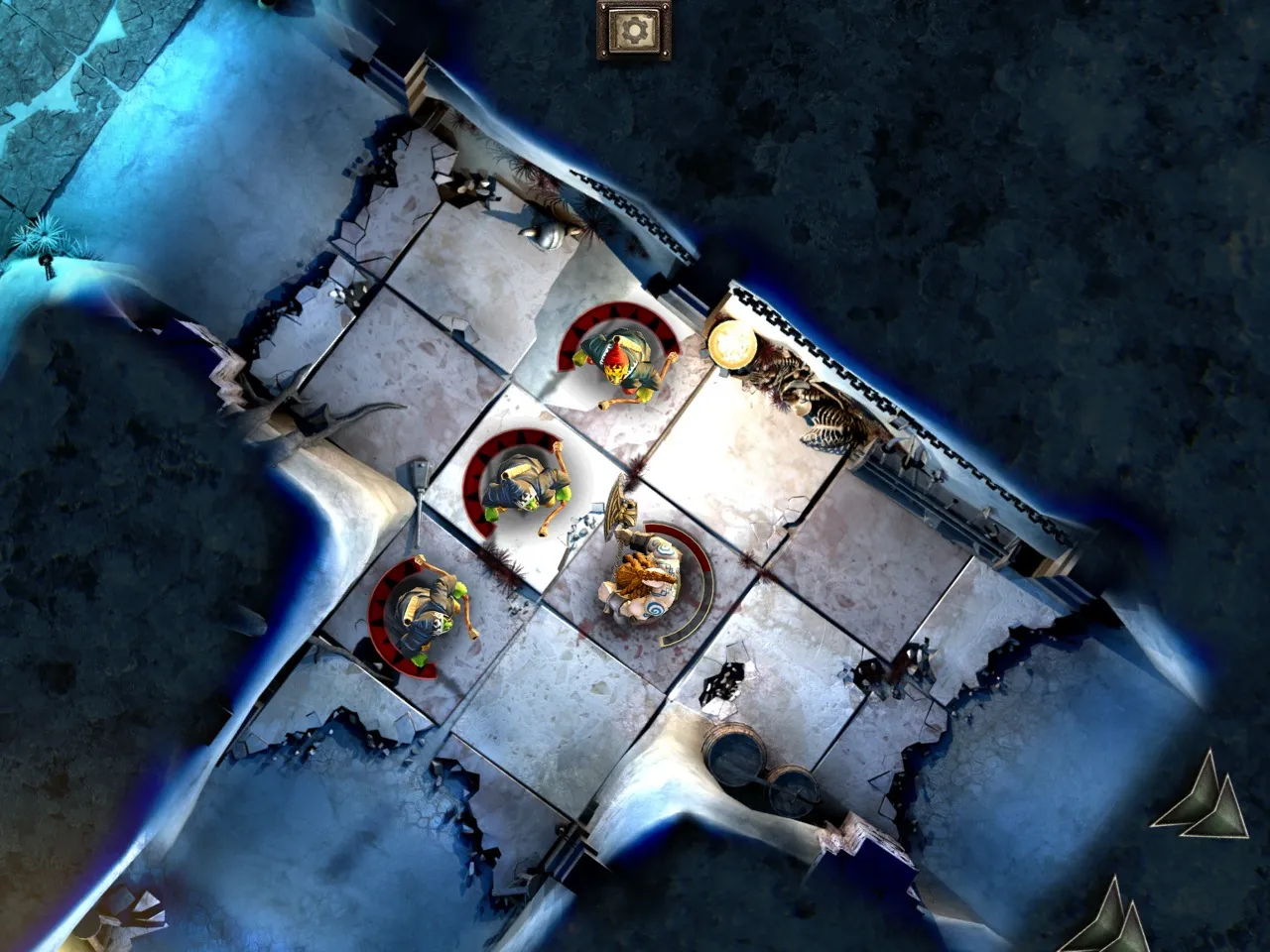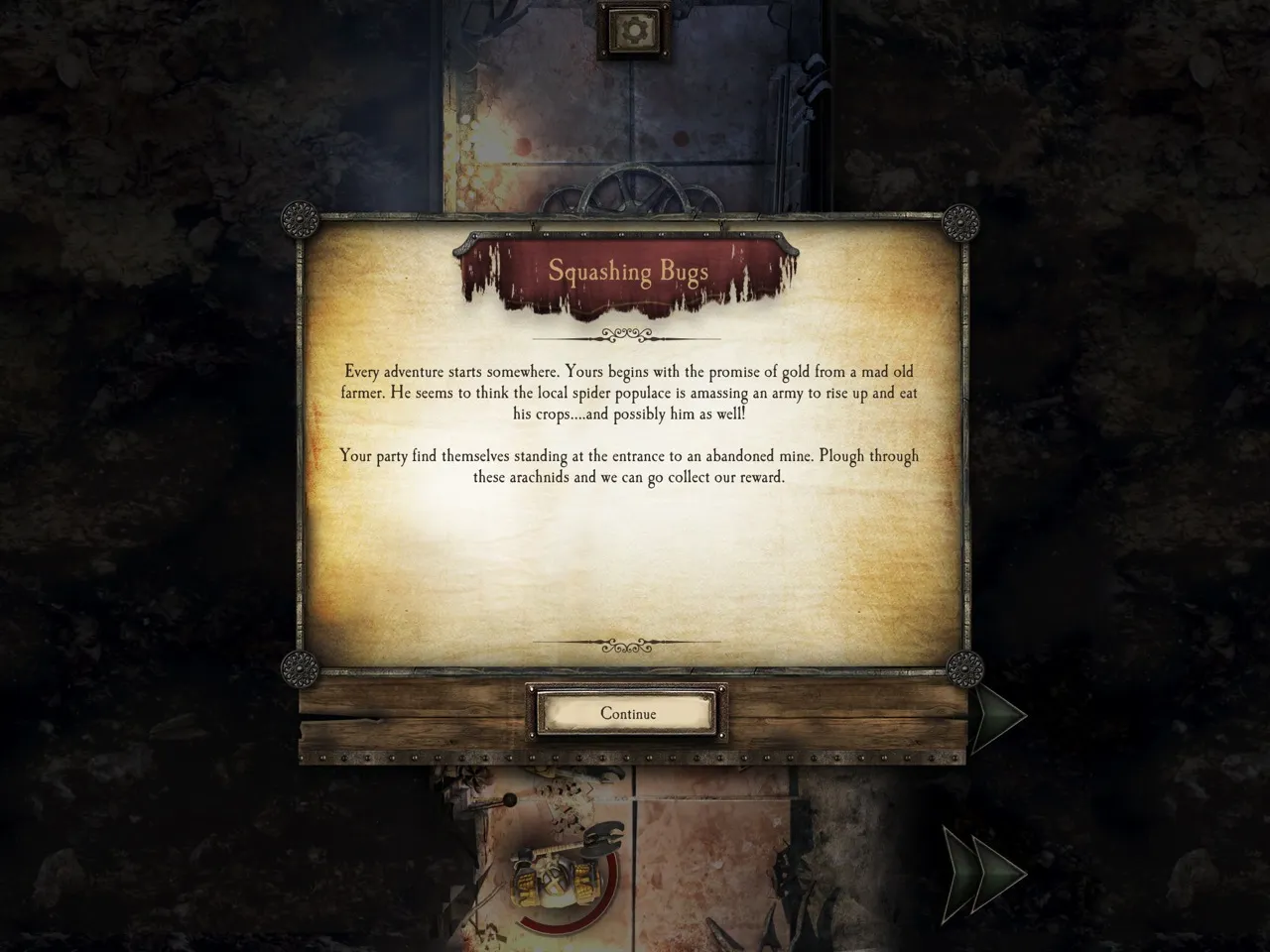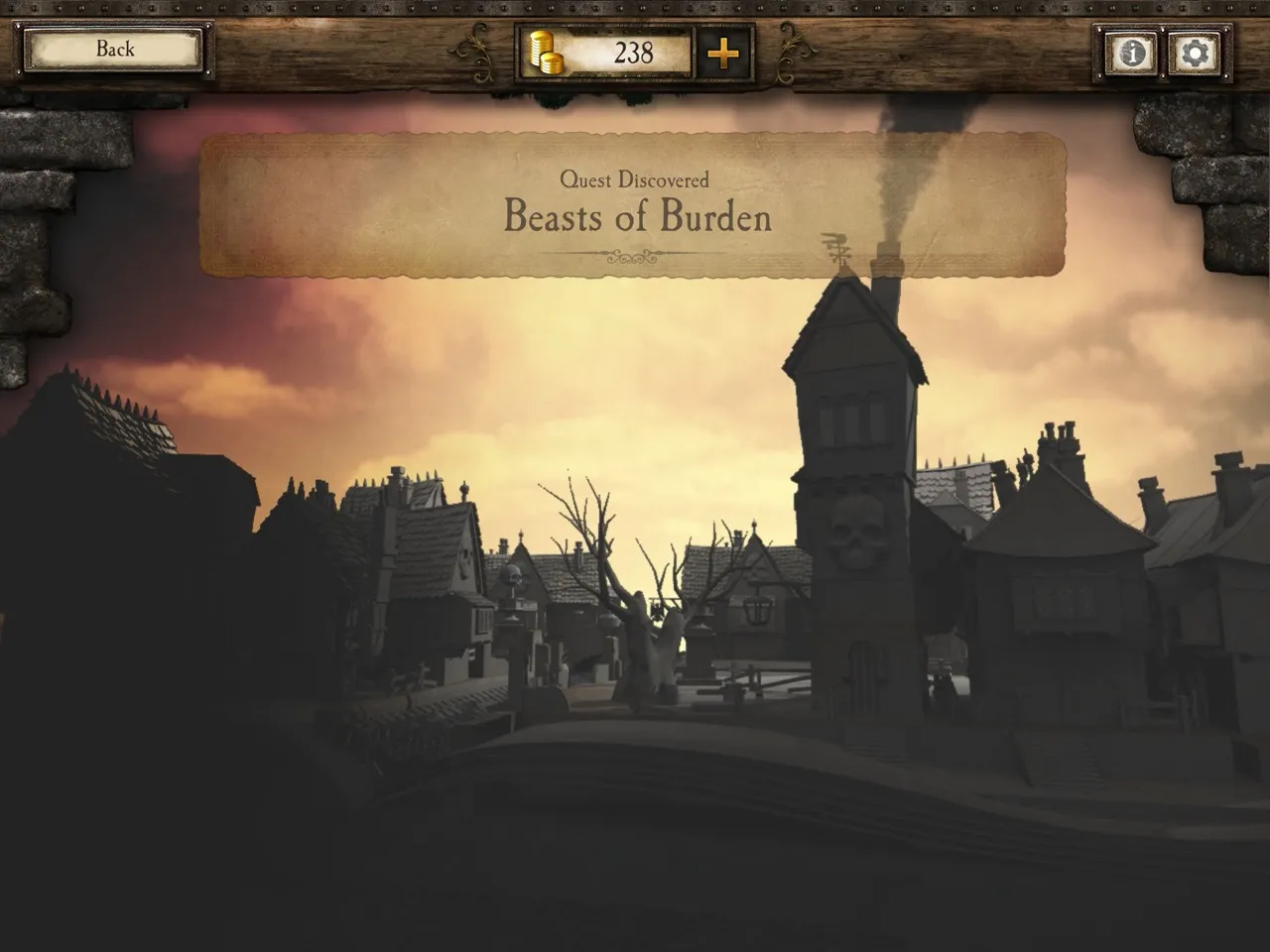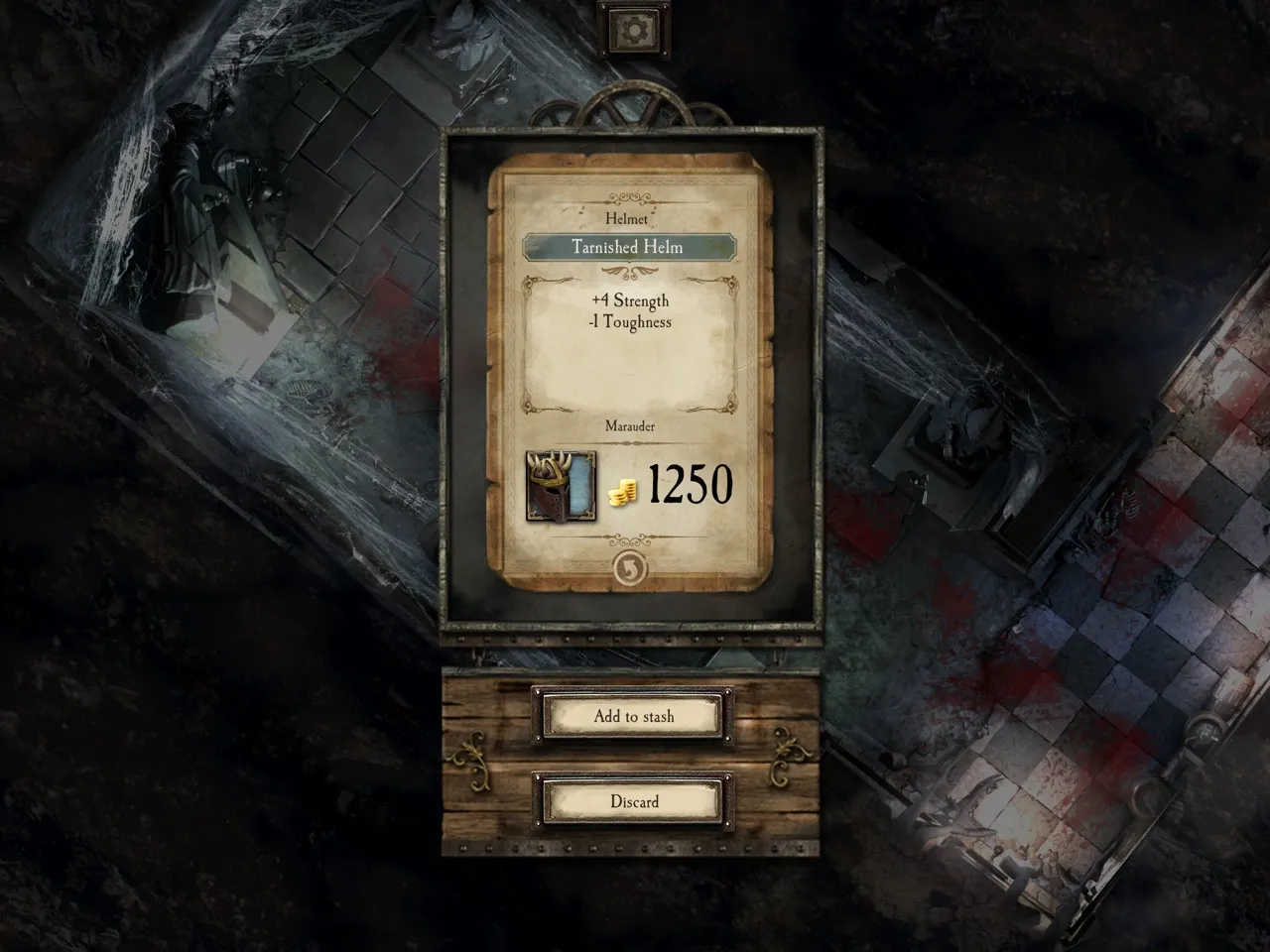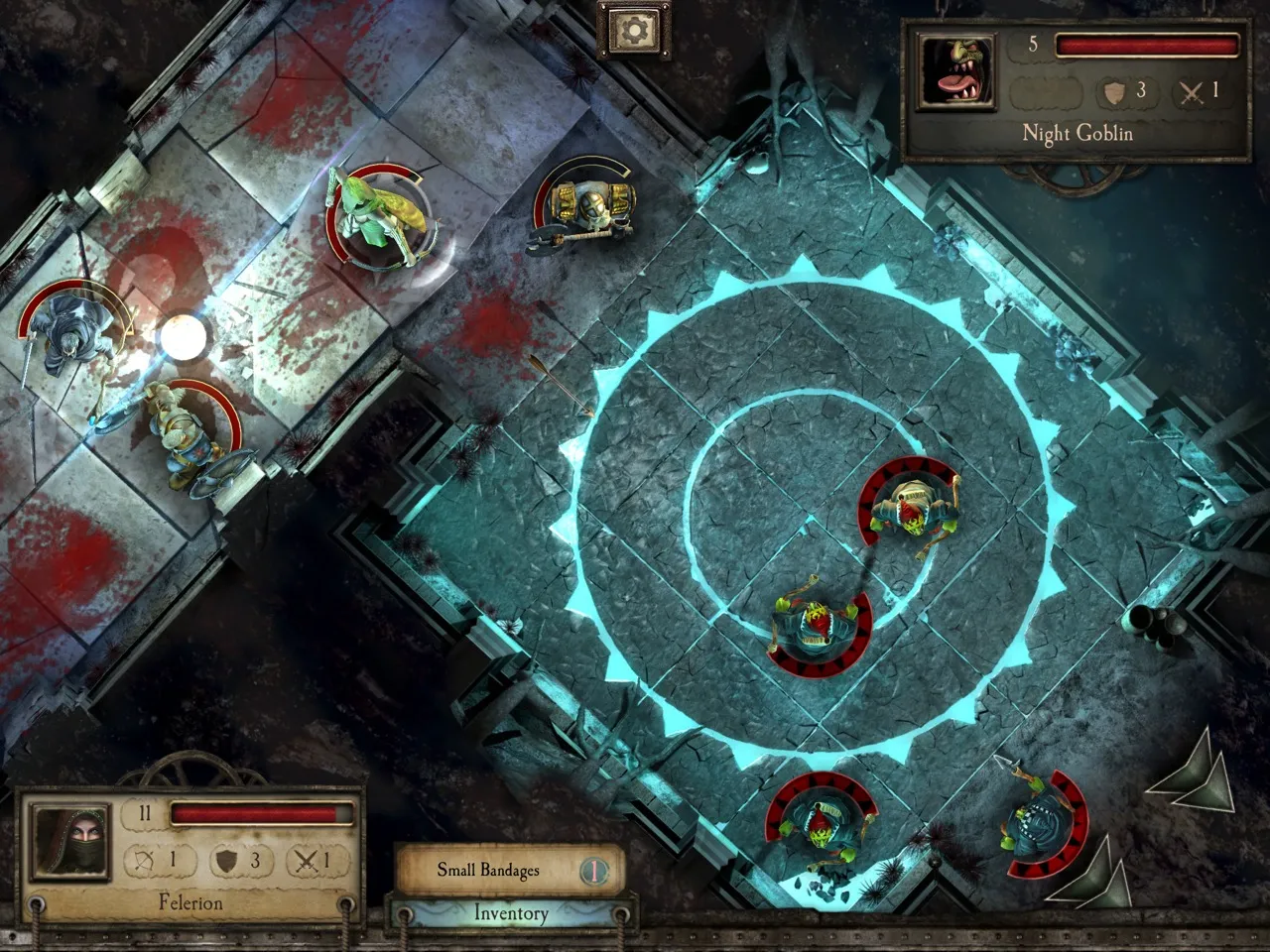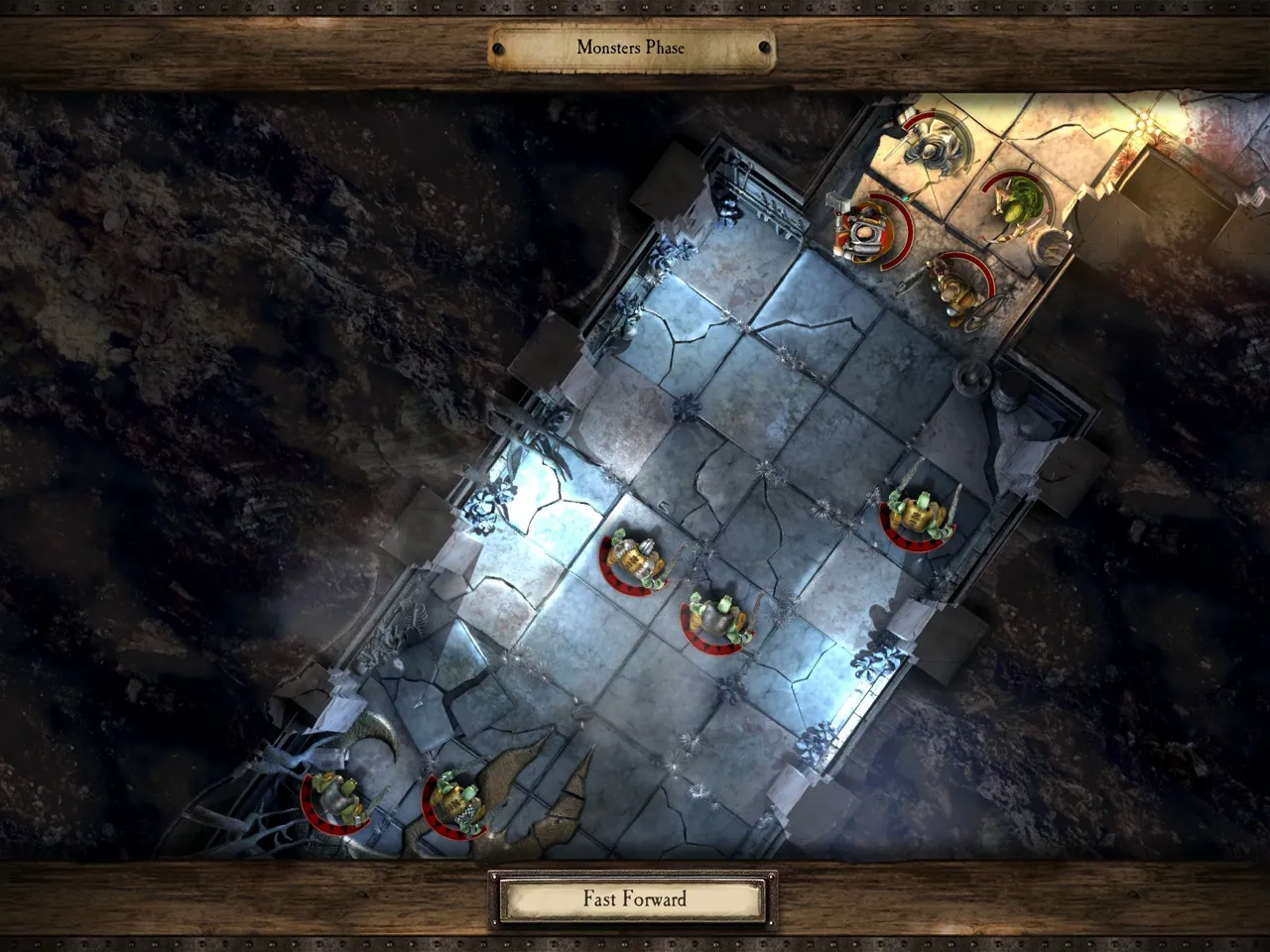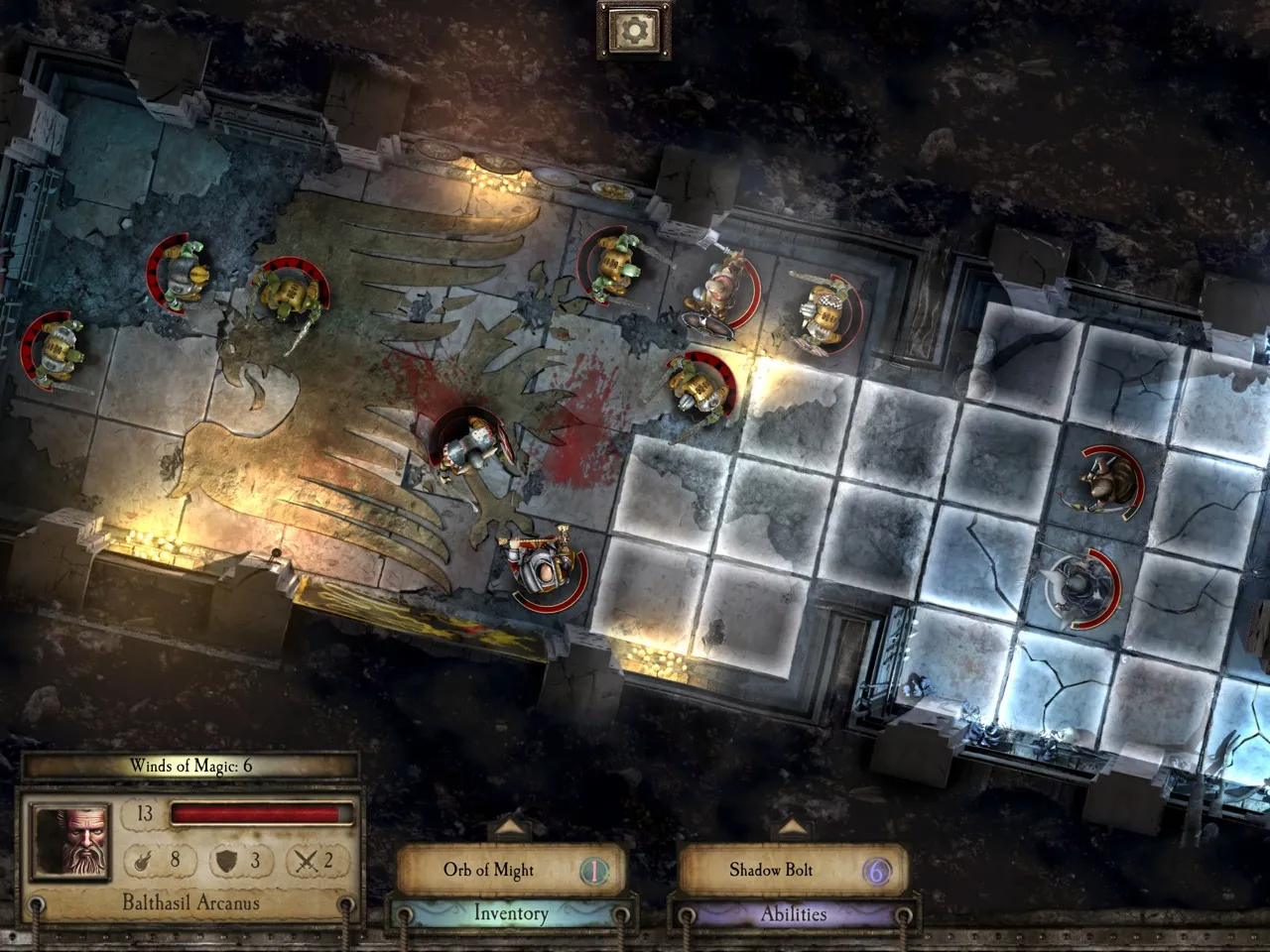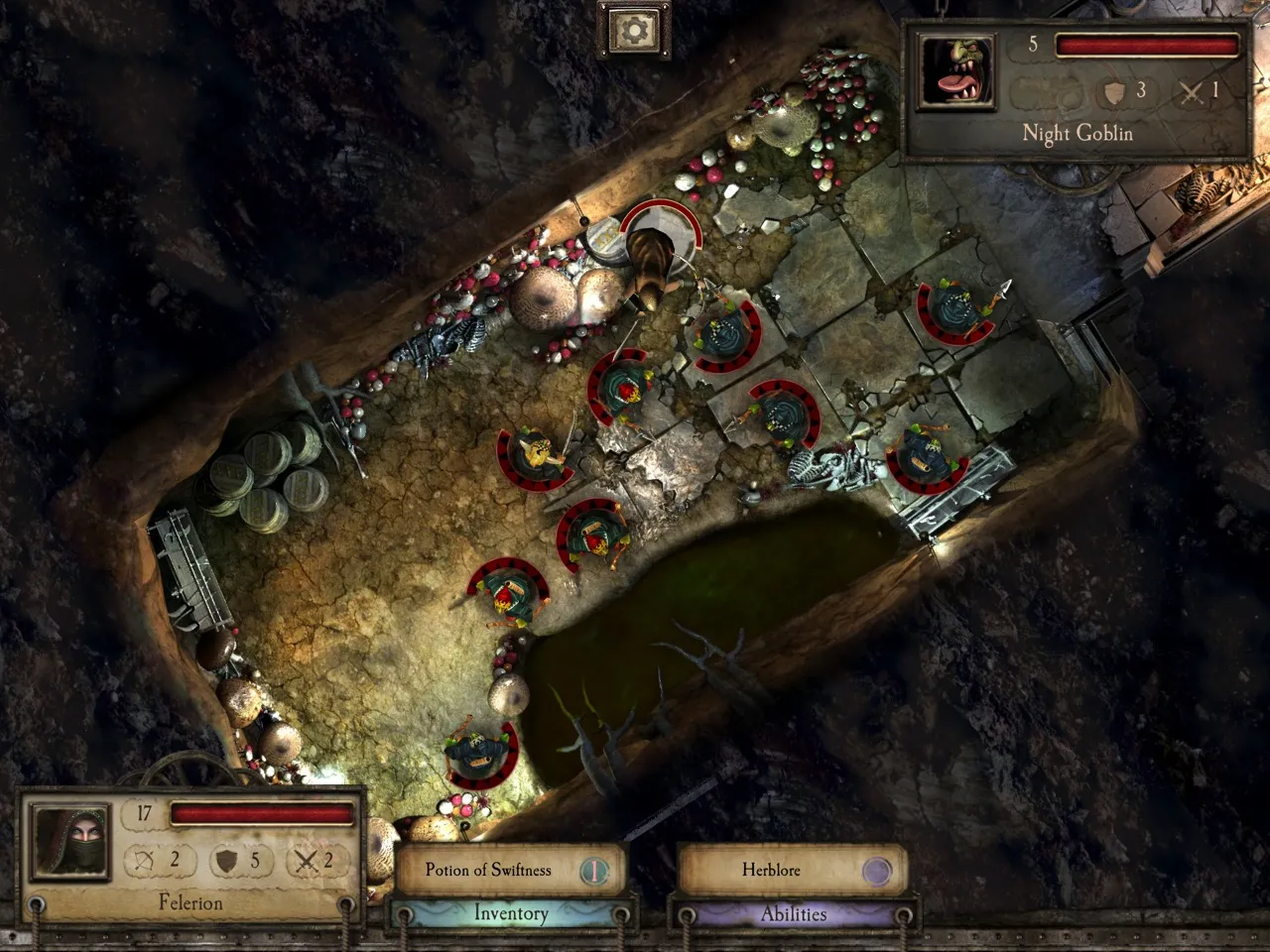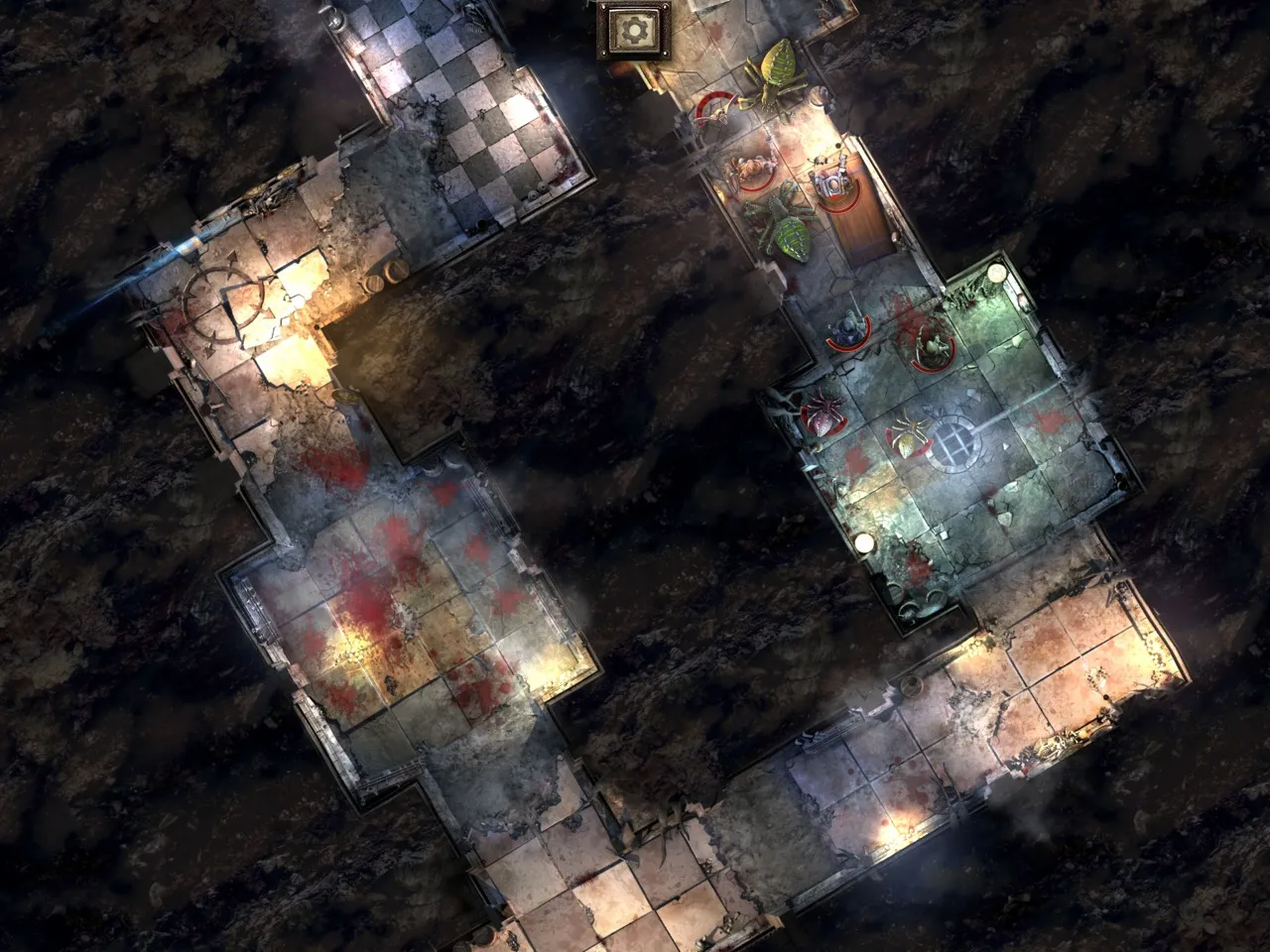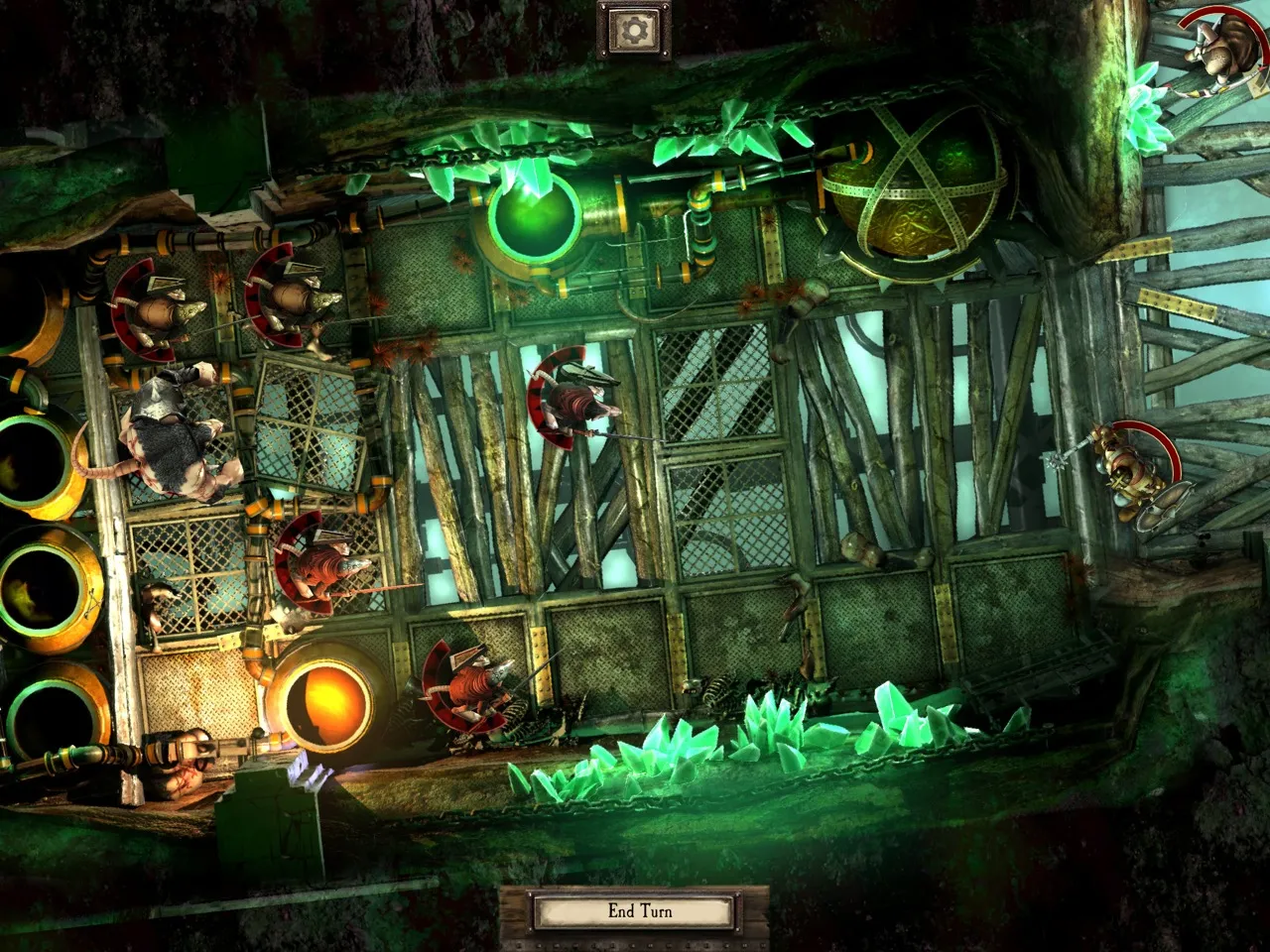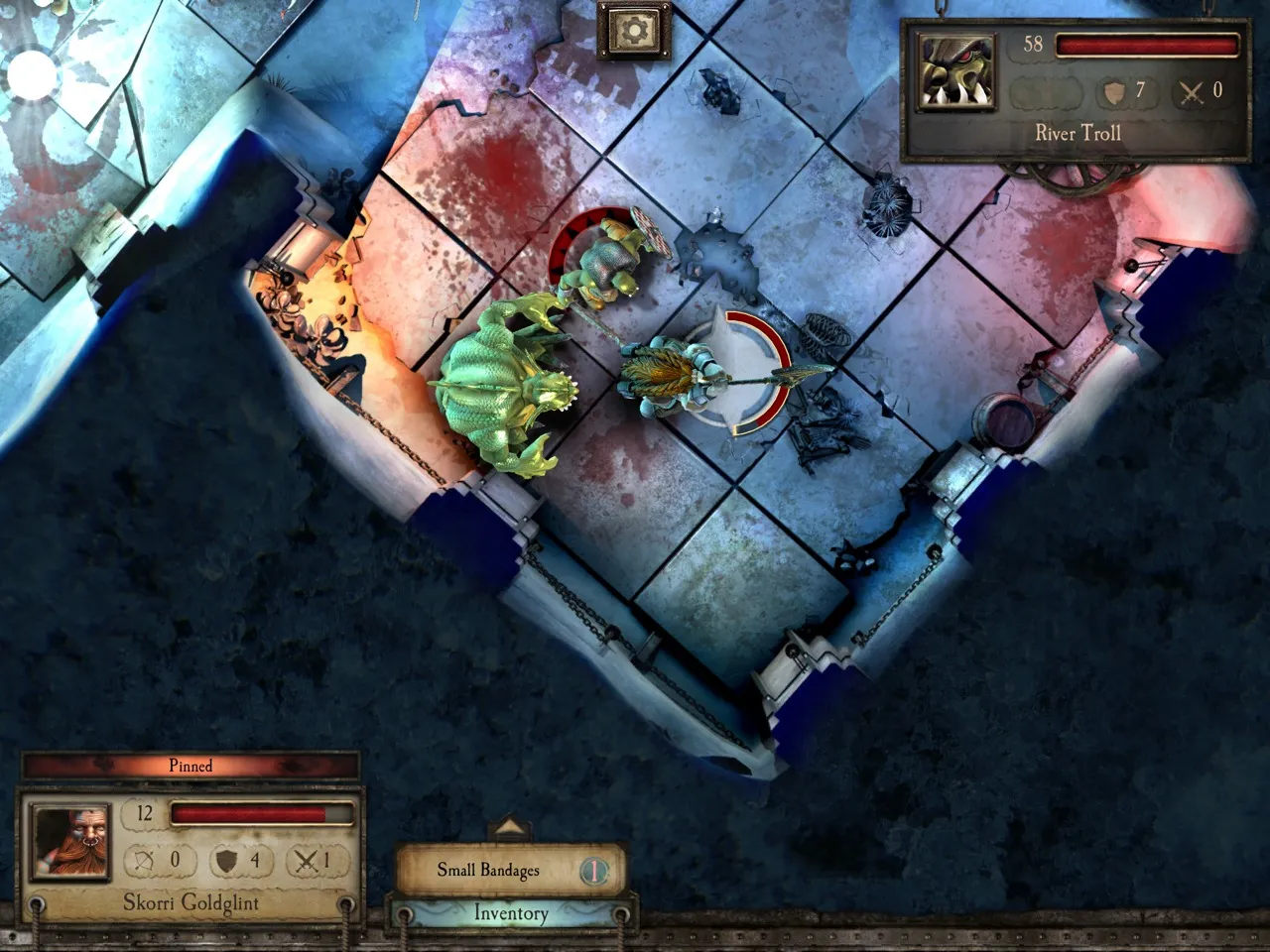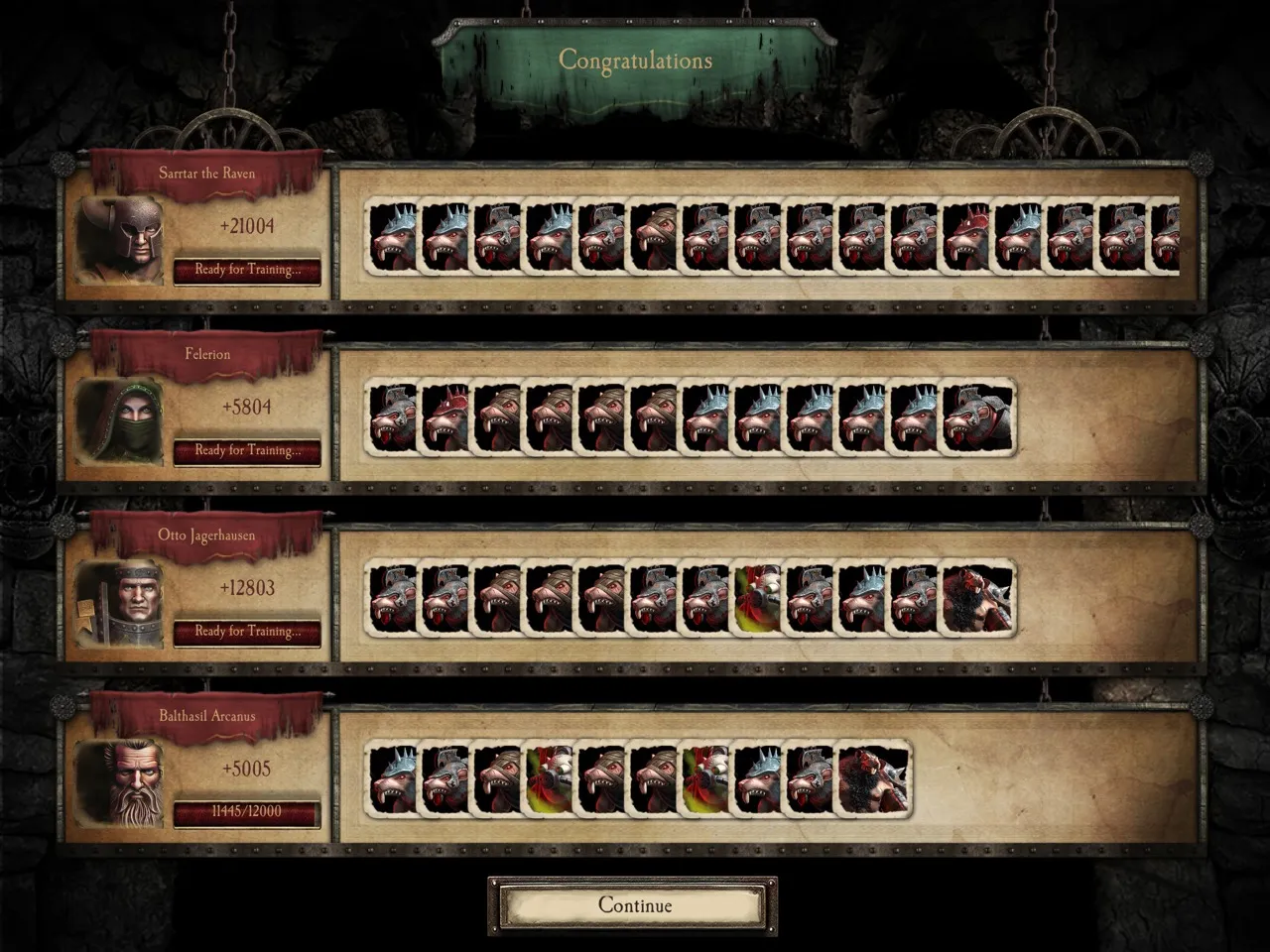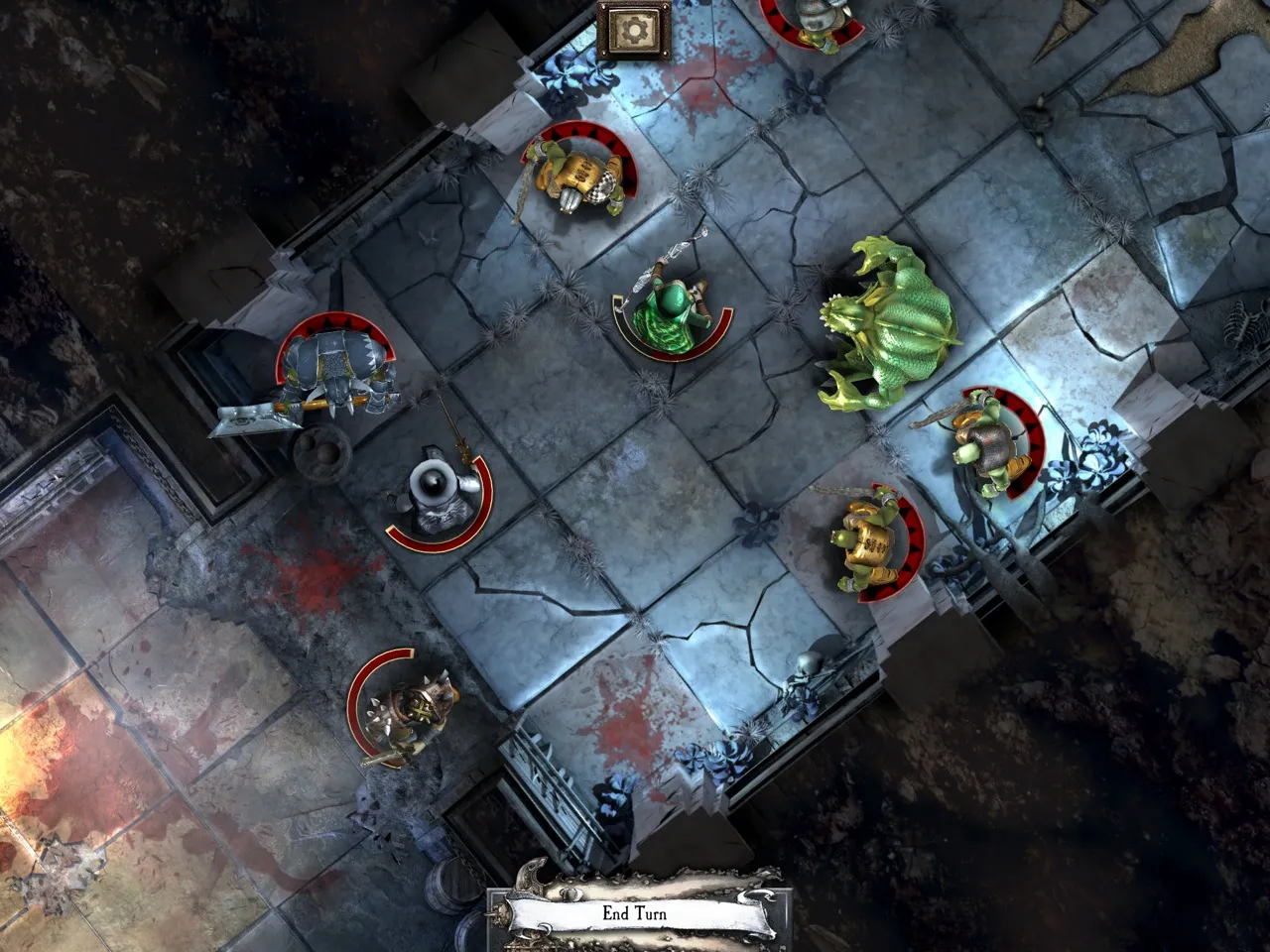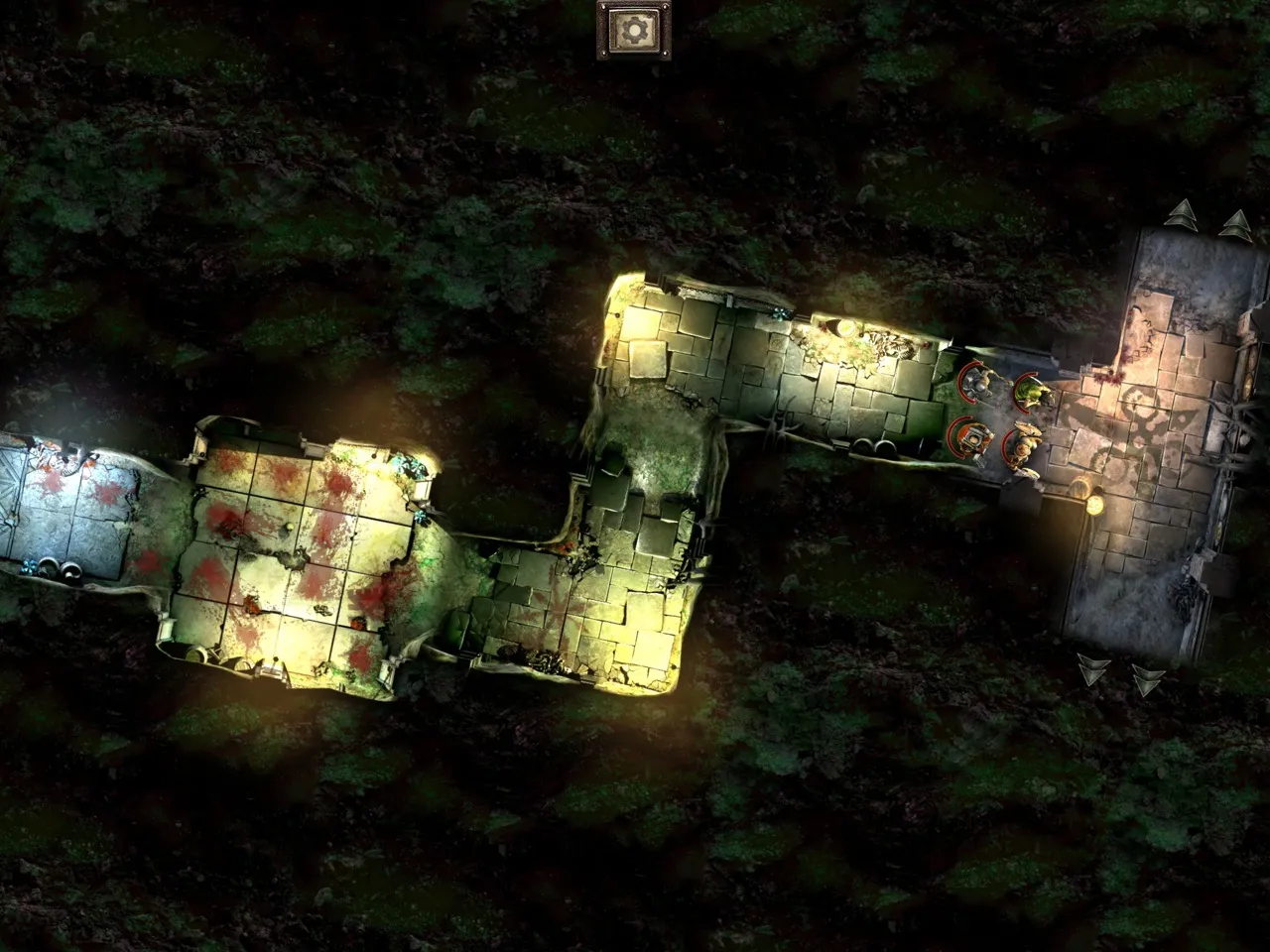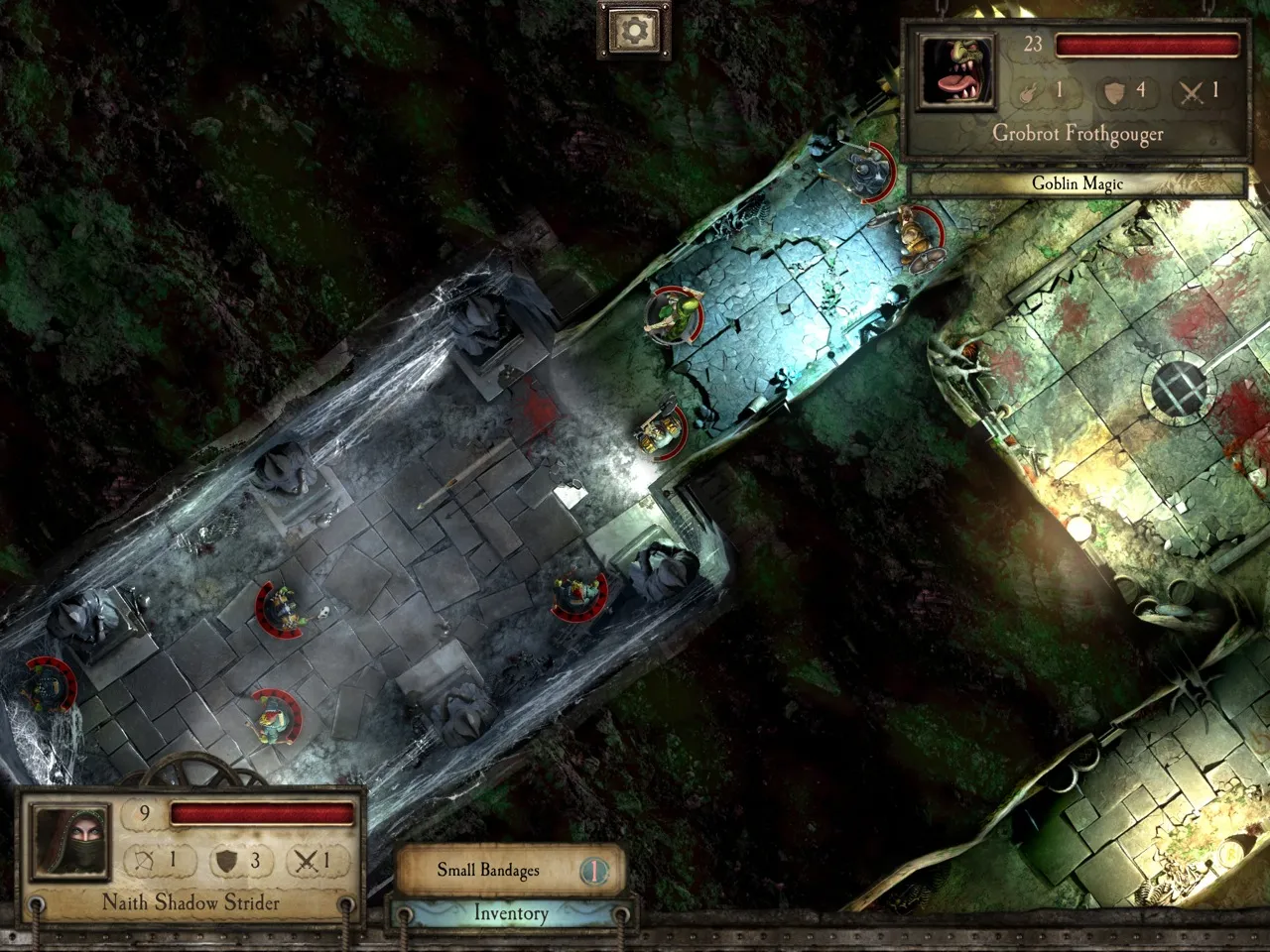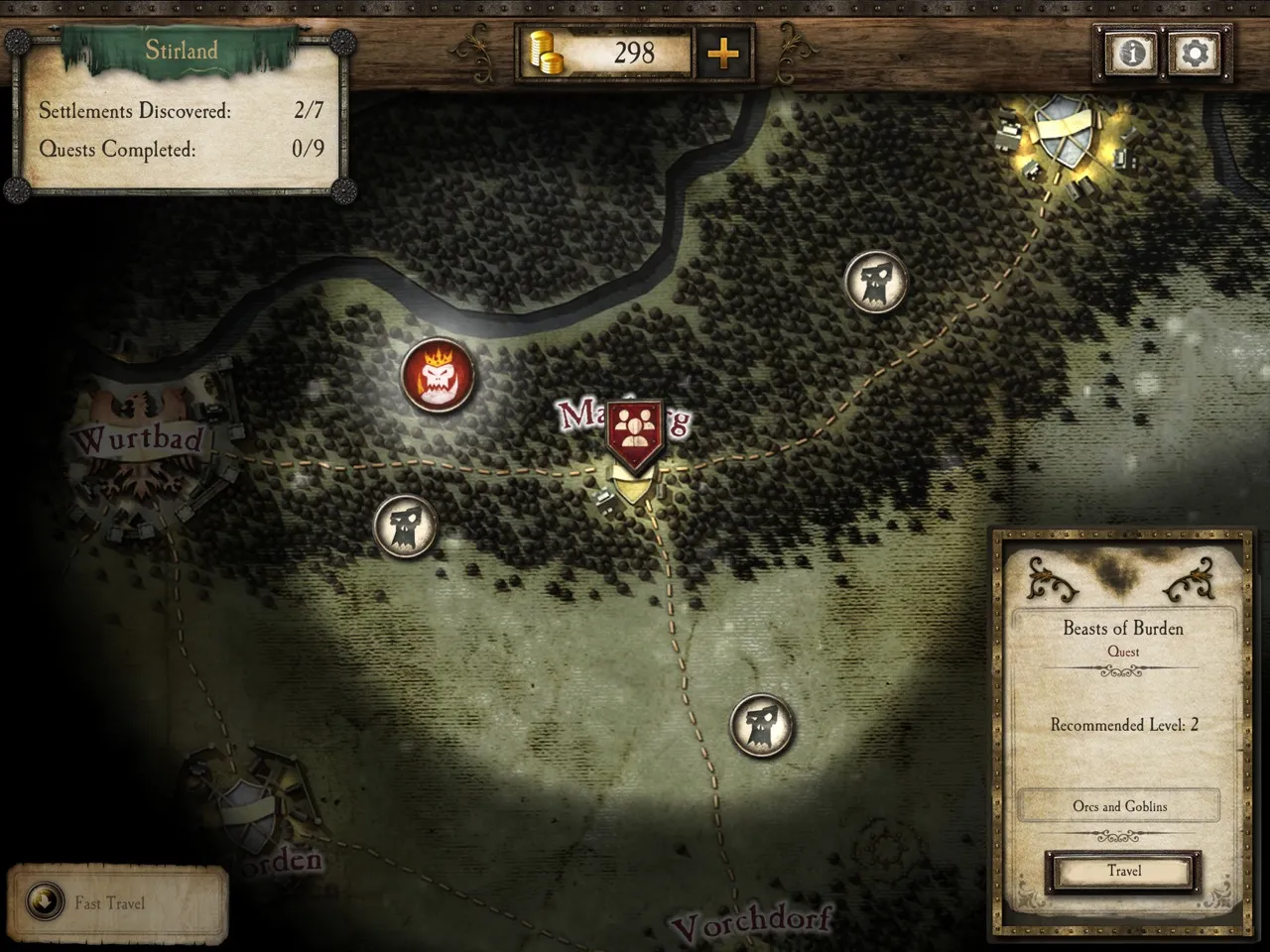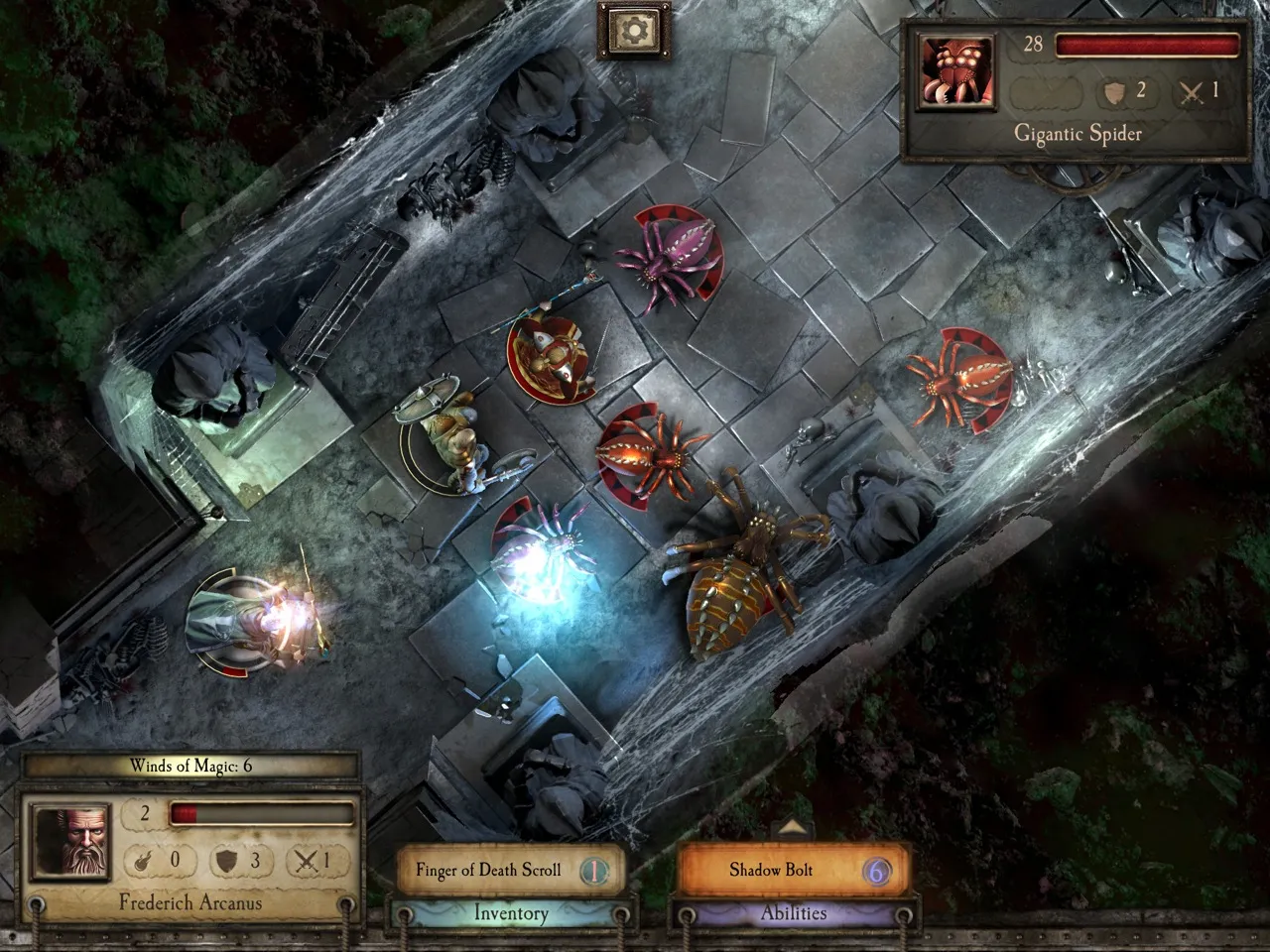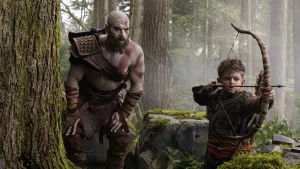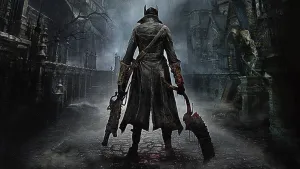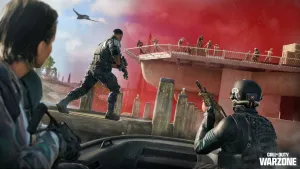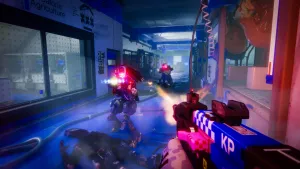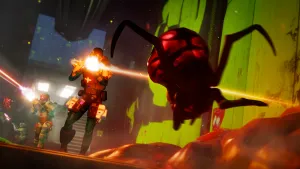Warhammer Quest Review

Android and iOS users have been treated to a growing number of
digital adaptations of tabletop diversions. Titles like Settlers of
Catan, Ticket to Ride, Ascension: Chronicle of the Godslayer, and
Neuroshima Hex, provide something for almost anyone. The latest to join
the party is Rodeo Games’ Warhammer Quest, based on a Games Workshop
board game of the same name from the 1990s.
Players
take a party of classic Warhammer heroes from settlement to settlement,
fighting giant rats, snotlings, orc boyz, and rat-like skaven. Your
general goal is to get to the end of dungeons while killing everything
in your path. Outside of towns, where provisions and weapons can be
acquired, play is turn-based .
Each round, invisible
dice determine a variety of values. Random rolls occurring behind the
scenes in combat aren’t new, but Warhammer Quest introduces
unreliability into some of the classes’ core skills. Magic points aren’t
accrued over turns; the available pool for each caster is assigned
randomly each turn, so you won’t know what spells your mage will be able
to cast. Marauders can become berserk and wound adjacent units, gain an
extra attack, or lose the turn altogether. The odds of your Warrior
Priest’s prayers being heard are determined at the beginning of each
round. All of these variables make tactical planning difficult.
Tabletop
and strategy game aficionados are used to randomness, but for those
accustomed to cheering great rolls or mourning utter failure, the lack
of transparency might be frustrating. The randomness has me conflicted; I
didn’t mind it in combat, but leaving character utility to chance
undercuts the strategy.
The main quests and side missions, which
typically reward successful parties with unique gear, are flavorful at
the outset and completion. Unfortunately, you get little narrative color
in between. What is present is well-written. Don’t expect any J.R.R.
Tolkien-caliber characters or scenes, but Warhammer Quest provides
sufficient motivation to delve into its treacherous dungeons.
The
entire affair is pulled together with one of the best interfaces I have
ever experienced in a mobile title. The town screen, overworld map, and
dungeon layouts are handled in landscape view. At any time, rotating
into portrait view transitions into the inventory. Manipulating this
screen is easy, and I found myself in and out of the journal and reserve
items quickly.
Dungeons can be zoomed by pinching, and more
importantly, the map can be easily rotated with two fingers. There is no
lag on my iPad with Retina display or my iPhone 5. Moving between the
two devices is a breeze thanks to the cloud save feature.
You get
four characters when you buy Warhammer Quest, but four content-based
in-app purchases are currently available. These add new quests,
tilesets, three additional classes, and a skaven expansion pack with six
additional settlements. The extra warrior types come with unique
equipment, giving them a leg up over the base classes.
In-game
gold for expensive arms and armor can also be acquired with real money,
operating like a cheat code. The additional heroes add diversity to the
game, but you can achieve victory just fine without opening your wallet –
especially on the regular difficulty settings.
The hardest
difficulty offers up permadeath, and I actually found myself
disappointed with it. Unlike XCOM, which encourages a large stable of
troops, Warhammer Quest limits players to one member of each class. This
makes losing even a single hero in the base game potentially
devastating. You can carry on, but you are at a significant
disadvantage. I found the lower difficulties much more enjoyable, with
the middle setting offering no discernable difference in combat
challenge.
The presentation of Warhammer Quest is both attractive
and economical. Of particular note, the pop-up book presentation when
entering a settlement is striking. Maneuvering through the menu-driven
towns is efficient, the journal of enemies and abilities is smartly
implemented, and the music and aesthetic work poured into the experience
balance grand adventure with the truth that the adventurers are really
just in it for the loot. Put simply, this is an excellent mobile
translation of a tabletop experience – but random design elements in the
source material hold it back.
